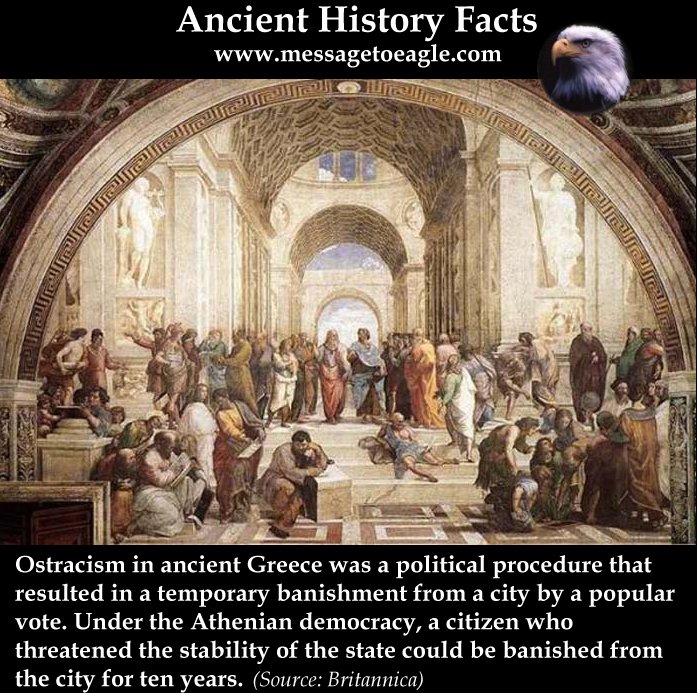Ostracism: Political Practice In Ancient Athens
Question: How did ancient Greeks practice ostracism?
Answer: Ostracism in ancient Greece was a political procedure that resulted in a temporary banishment from a city by a popular vote. Under the Athenian democracy, a citizen who threatened the stability of the state could be banished from the city for ten years. Each year the Athenians were asked in the assembly whether they wished to hold ostracism.
Any citizen entitled to vote in the assembly could write another citizen’s name down, and, when a sufficiently large number wrote the same name, the ostracized man had to leave the city within 10 days.
See also:
Ancient Roman Government Structure And The Twelve Tables
What Was Life Like For Children In Ancient Athens?
Ostracism is said by Aristotle, in his Constitution of Athens, to have been introduced by Cleisthenes in his reform of the Athenian constitution after the expulsion of Hippias (c. 508 bc), but the first use of it seems to have been made in 488–487 bc, when Hipparchus, son of Charmus of Collytus, was ostracized.
MessageToEagle.com
Source:











